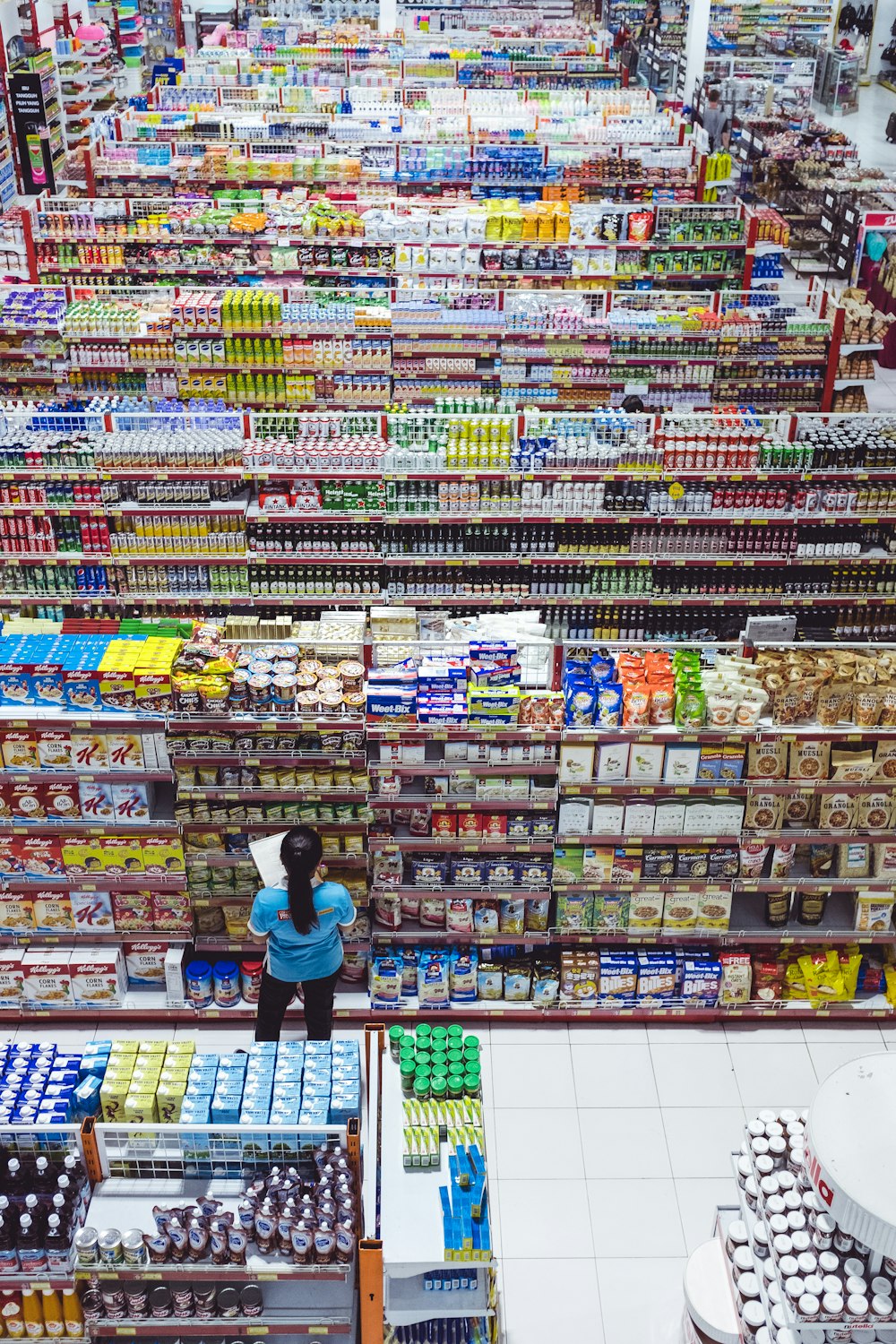Fast moving consumer goods: Fast-moving consumer goods (FMCG) are products that are purchased frequently and quickly. These products have a short shelf life, rapid rate of adoption, and high visibility. They also have similar characteristics: they’re made of basic raw materials, sold through modern channels of distribution, and produced in response to rapidly changing market demand.
FMCG refers to a wide range of packaged goods that move quickly through the supply chain from production to final sale to consumers. This category includes everything from sodas and snacks to soaps and canned fish, together with their primary ingredients such as sugar, oils, juices, artificial sweeteners, preservatives, colors, flavors and aromas.
There are several subcategories of fast-moving consumer goods as well: Food — which includes anything from jams and jellies to ketchup and mayonnaise; drinks — including both alcoholic beverages such as beer and nonalcoholic ones like sodas; personal care — for example toothpaste; cleaning supplies — like bleach or hand soap; home care — including air fresheners and dishwashing liquids; packaged food services like pre-prepared meals or frozen meals; pet food; tobacco products such as cigars or cigarettes; spices; condiments like ketchup or mustard; vitamins; ice cream or ice pops—and packaged water.
The way to get started is to quit talking and begin doing. You can request publication of your article for publication by sending it to us via our Email below. Click here to start business now with businesshab.com
What is a FMCG?

Types of FMCG Companies
Fast-moving consumer goods (FMCG) companies are primarily manufacturers of packaged goods.
They operate in a wide range of industries and subcategories. This includes food, beverages, cleaning products, and personal care products. Food FMCG companies manufacture and sell food products.
This includes fresh, frozen, and packaged foods. They can be either fresh produce or processed foods.
Examples of food FMCG companies include: Dairy: Milk, yogurt and other dairy products such as cheese, butter and ice cream; Meat and fish: Meat products such as sausages, salami, bacon and ham;
Fish and other seafood products; Fruit and vegetable products such as frozen, canned and dried fruit, vegetable juices, and baby food. Beverage FMCG companies manufacture and sell a wide range of drinks.
These can include carbonated soft drinks, sports and energy drinks, fruit juices, vegetable juices, hot drinks like coffee and tea, alcoholic drinks and non-alcoholic sweetened beverages.
Examples of beverage FMCG companies include: Soft drinks: In addition to carbonated soft drinks, these can also include non-carbonated drinks such as fruit juices and vegetable juices, sports and energy drinks;
Hot drinks: Tea and coffee, other hot beverages such as herbal teas, hot chocolate and hot apple juice; Fruit juices: Juices made from fresh or frozen fruit; Vegetable juices: Juices made from fresh or frozen vegetables.
Home care FMCG companies manufacture and sell cleaning products. These are used for household cleaning jobs such as dishwashing, cleaning the bathroom and kitchen, and cleaning windows.
Examples of home care FMCG companies include: Cleaning products: Dishwashing liquids, multi-purpose cleaning liquids, bathroom cleaners, kitchen cleaning detergents, window cleaners, and floor cleaners;
Disposables: Cutlery, tableware, kitchen utensils, and napkins. Personal care FMCG companies manufacture and sell a wide range of personal care products.
These include skin care products such as soaps and cleansers, hair care products such as shampoos and conditioners, oral care products including toothpastes and mouthwashes, and baby care products.
Examples of personal care FMCG companies include: Soaps and cleansers: Soaps, cleansers, and other skin care cleaning products;
Hair care products: Shampoos, hair conditioners, and hair styling products; Oral care products:
Toothpastes and mouthwashes; Baby care products: Baby wipes, baby oils, and baby creams.
Summing up
Fast-moving consumer goods (FMCG) companies manufacture and sell products with high turnover. These can include food, beverages, cleaning products, and personal care products.
FMCG companies are primarily manufacturers of packaged goods. FMCG companies produce packaged goods as their primary business. They must also be a stand-alone business that operates independently of other FMCG businesses.
Therefore, companies whose primary business is supplying raw materials to other FMCG businesses don’t qualify. There are many subcategories within the FMCG sector.
Some examples include: Food: Soft drinks, Dairy, Meat and fish; Beverages: Hot drinks including coffee and tea, Soft drinks;
Home care: Cleaning products such as dishwashing liquids and laundry detergents; Disposables: Cutlery, Tableware and kitchen utensils.